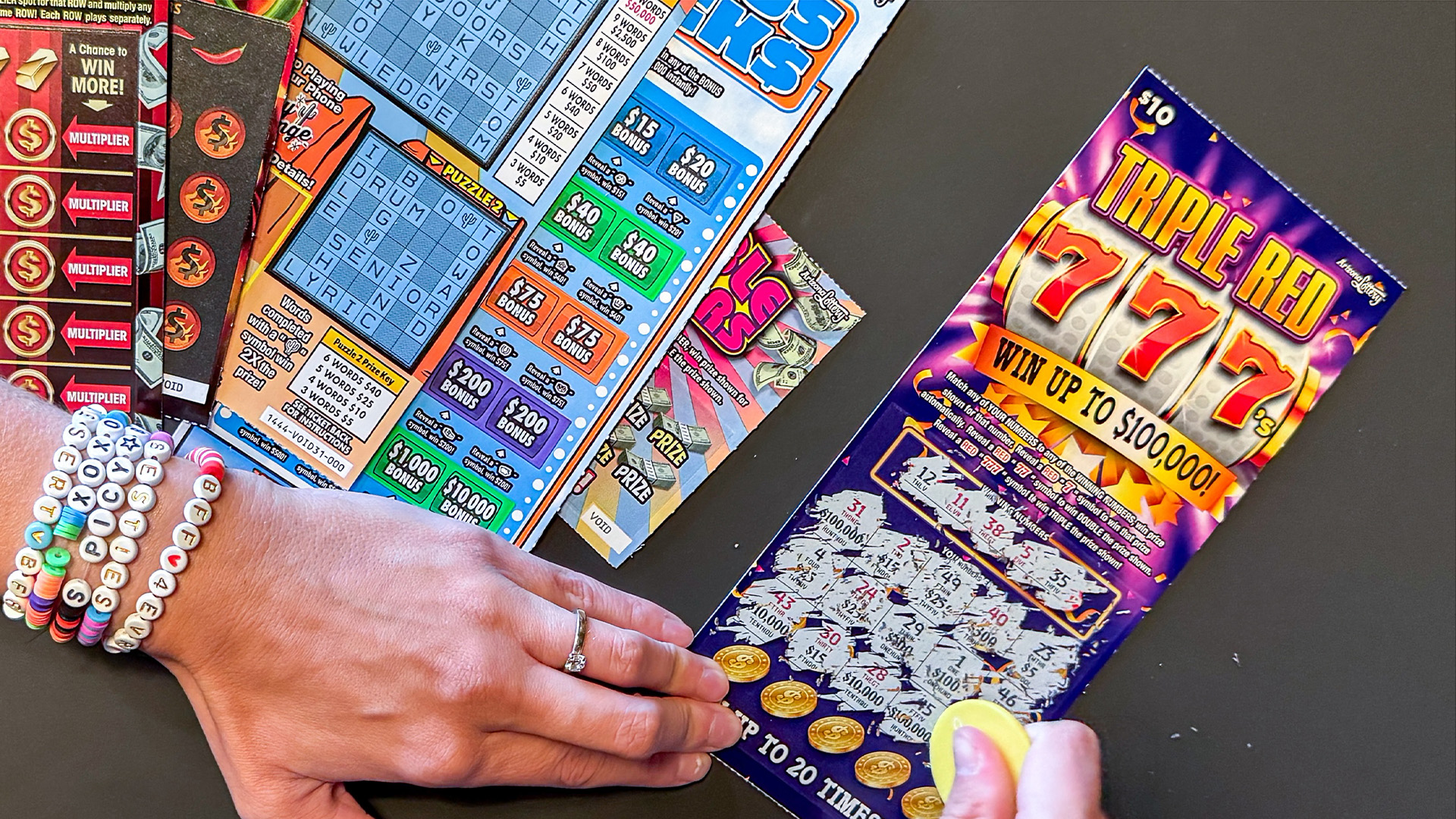
Earlier this month, Jackpot.com announced that it had added Arizona as the eighth state in which it would offer users the chance to buy any of Arizona Lottery's options online.
And while some might expect this type of change would require some sort of partnership with the state agency that runs lottery games, the company is not any more affiliated than other retailers.
"Jackpot.com is a third party courier service that sells those Arizona lottery products and that are purchased through licensed Arizona lottery retailers, but they are not affiliated or an agent of the Arizona lottery," said Arizona Lottery spokesperson Cydeni Carter.
Jackpot.com Co-Founder and CEO Akshay Khanna said the company operates as any other authorized lottery retailer, including a physical location.
"We have employees on the ground in Arizona, just like we do in every single one of the other states that operate, who are responsible for the fulfillment of all of these tickets. Now it's, it's not, it's not somebody manually sitting and scratching tickets. We have technology behind that," he said.
Khanna said the company uses the same tools that online sports books operating in Arizona use, allowing them to verify a user's age and that they are in Arizona at the time of purchase.
The company notes it has received an iCap certification from the National Council on Problem Gambling, which the NCPG said is based on the Internet Responsible Gambling Standards established by "a panel of gambling harm prevention experts from around the world."
NCPG's list of top donors on its website include a number of groups associated with sports gambling, including Caesars Entertainment, FanDuel and Las Vegas Sands Corp, as well as the National Football League Foundation, Major League Baseball and the PGA Tour.
But, for some experts, like Dr. Lia Nower, online gambling age checks in general are lacking.
"There is no way to tell who is gambling. You can tell whether the person who opened the account was an adult, but not who's actually gambling on that account," said Nower, a Distinguished Professor and the Director of the Center for Gambling Studies at Rutgers University.
Another concern is the ability to intervene when playing lottery games becomes an addiction.
"We do work very closely with our retailers to identify some problem gambling that is occurring with people who maybe come into their stores and they're able to provide information on problem gambling as well in store," said Arizona Lottery's Cydeni Carter.
But Khanna said that the same problems exist for physical lottery retailers, who have an incentive to sell lottery tickets.
"The fact of the matter is, today, if someone were to go to retail and buy a lottery ticket, there's pretty loose checking in most retail of age verification, certainly no questions asked about responsible gaming. You know, I often say you could cash out your entire life savings, put them in a paper bag, go to your nearest gas station, buy lottery tickets for the entire amount, and no one's going to stop you," he said.
Jackpot.com performs both algorithmic and manual checks to try and identify problem gambling, according to Khana.
"If any of this problem behavior is being displayed, we either put these individuals in time out, we reach out to them. And so it's a substantial leap over the status quo," he said.
Nower said lottery tickets are often how gambling addicts get their start, and she worries about who is mostly likely to buy lottery tickets.
"Lotteries are typically a regressive tax on the poor, which means that people who have lower education, lower income spend a disproportionately larger amount of their available funds on lotteries, and tend to have gambling problems with lottery tickets."
Khanna said company data show Jackpot.com users mostly buck that trend. They tend to be more affluent and younger than typical lottery users.
But regardless of income, Nower said online gambling greatly increases access, and that can aid in problem gambling.
"With physical locations, you have transportation time, you have to make an excuse to your employers or your family or whatever, for your time away. And there is an awareness that's raised if you're going more than people think is really healthy. Online, you can completely hide what you're doing. You have that casino, that sports book in your pocket. You can be lying in bed at night while your partner's asleep and you're gambling away the house," she said.
Nower advocates for any gambling business, particularly those that facilitate online gambling, should operate on a system where users pre-set a limit for what they are willing to lose before intervention happens.

By submitting your comments, you hereby give AZPM the right to post your comments and potentially use them in any other form of media operated by this institution.